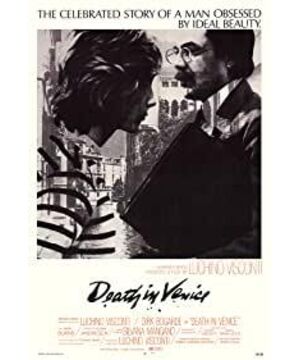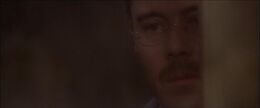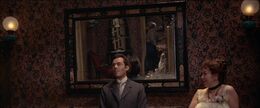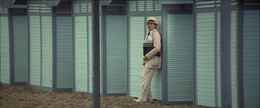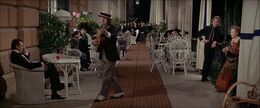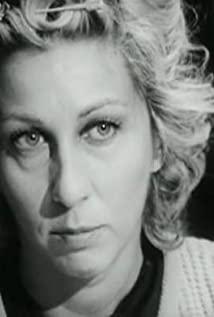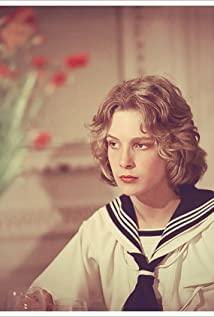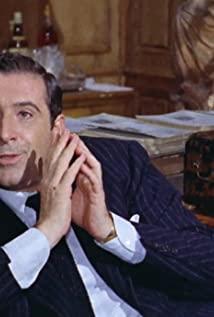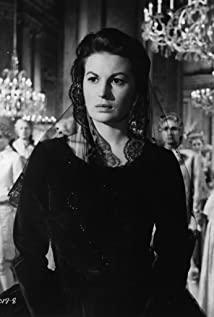The movie had Venice in its name, and it was a man and a woman who met on the way to Venice for their own feelings at the same time.
Then from coincidences, conflicts, misunderstandings, to the final love, in short, it is a very warm, romantic and happy movie.
The search was unsuccessful, but the movie was downloaded.
From the name, I thought it was a sad and romantic love story, but it was very different from what I imagined.
After half an hour, I still don't know what to say, even someone like me who likes boring movies is impatient.
D told me don't watch it, it's not interesting at all, don't waste time.
Halfway through, I stopped to watch "Pirates of Fire", and wanted to feel depressed about the impact of the war.
I watched it again the next day, wondering what's so good about such a well-received movie.
Overall, it's a pretty good movie, both the music and the characters' performances are pretty good.
It's like a soothing, long and poignant ballad, but it just doesn't fit my mood.
This song is too long and it makes people impatient. Still not looking good.
At first I thought the film was about art because they debated different understandings of art.
——Reality only confuses and degrades us. Artists are like hunters aiming in the dark. They don’t know what the target is, and they don’t know if they can hit it, but you can’t expect life to illuminate the target and let you aim. To be precise, creating beauty and purity is a spiritual act.
—Beauty belongs to the senses, only to the senses.
- You cannot touch the spiritual side, you cannot touch the spiritual side through the senses, it is impossible. Wisdom, truth, and human dignity can only be attained by full control of the senses.
—Wisdom, truth, and human dignity? What is the use? Genius is a divine gift, no, a divine torture. An evil, morbid fire of talent.
- I don't agree with diabolical artistic values, you are wrong.
- Evil is indispensable, evil is the food of genius.
——Art is the highest source of education, an artist must be a role model, he must be a model of harmony and strength, and must not be ambiguous.
- But art is ambiguous. Music is one of the most ambiguous of all books, and it's the ambiguity that makes the art, you can interpret these chords as you want, unpredictable and inexhaustible, double-meaning bliss.
I agree with the latter, because people always have their own different understandings of art, and they get as much as they understand.
But then I felt that this was not a film about art, but a gay film.
Or a platonic gay movie.
After watching the movie and reading the introduction, I realized that this is a movie based on Thomas Mann's novel.
The soundtrack is the Adagio of Austrian composer and conductor Gustav Mahler's Fifth Symphony.
Aschenbach's prototype was originally Mahler, and Thomas Mann also had a special affection for him.
German composer Asenbach meets Tacchio in Venice.
Tacchio is a handsome young man with a face like a Greek statue, and his beauty makes the composer shudder.
He forgot the pain in his heart, and immersed himself in the enthusiasm for the young man, following his figure all the time.
But he didn't dare to approach the young man, although he always gave him hints and seduced him intentionally or unintentionally.
His friend said: That's not shame, that's fear, just eating is mental pain, you're immune. You just run away, hate and keep your distance. You are afraid to touch anything directly and honestly because your moral standards are too strict. You want your actions to be as perfect as the music you create, and the slightest mistake is a big mistake and can cause irreparable harm. You are indebted to your senses, dishonest and incurable. This is the joy of an artist!
"I have to find a balance," he said.
A friend said: It is a pity that art ignores personal morality. Otherwise you can surpass everything, incomparable. Do you know what the bottom of the mainstream is, mediocrity.
But he did not approach the beautiful boy because of his friend's words, but looked at him from a distance, suffering in his heart.
Every time I saw him with the other boys intimately, the pain was almost convulsing, unbearable.
He said in his heart: It's a pity that the time to meet you this time has come so quickly!
He said: I forbid you to smile like this! You are not allowed to smile like this to anyone!
Later, when he learned that Venice had been enveloped by the plague, he did not flee immediately.
In order to get another look at Tacchio, he followed him all the time, and finally willingly contracted the plague and died in Venice.
At the last breath of life, what remains in his eyes and heart is the wonderful image of the beautiful boy staring at him.
I don't know if I'm getting colder and colder, but I think it's not bad, I'm finally dying.
Or, you may not be able to achieve the happiness you want, so what's the regret of dying in blissful feelings.
View more about Death in Venice reviews


